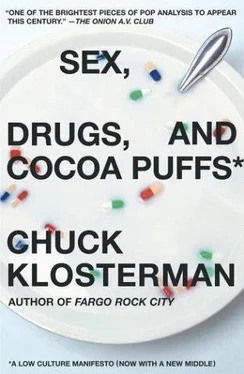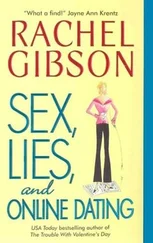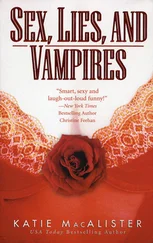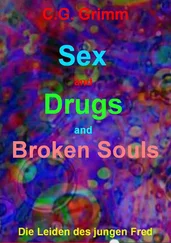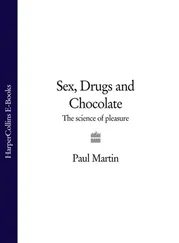Ironically, they both attacked each other for doing this. By the ninth episode, Puck was breaking the fourth wall by suggesting that Pedro was trying to force his message down the throats of viewers; no one had ever implied something like this before. Without being too obvious, The Real World producers relaxed the reins and gave up on the notion that this show was somehow organic; a decision was made to let Puck and Pedro fight over the future identity of The Real World . Puck represented the idea of a show where everyone was openly fake and we all knew it was a sham; Pedro represented the aesthetic of a show where what we saw was mostly fake, but we would agree to watch it as if it was totally real. It was almost a social contract. To feel Pedro’s pain (as Bill Clinton supposedly did), you had to suspend your disbelief—a paradoxical requirement for a reality program.
In the end, Puck’s asinine subversion turned everyone against him with too much voracity. He was jettisoned from the house in episode eleven, appearing only sporadically for the remainder of the season. Pedro remained in the residence and became MTV’s shining moment of the 1990s; he proved himself as an educational hero with a mind-blowing flair for the dramatic (the fact that he died the day after the final episode aired is almost as eerie as Charles Schulz dying the same day the final Peanuts strip ran in newspapers). Though the second half of the RW 3 season (after Puck’s departure) is considerably less entertaining than its first half, it’s probably good Puck was booted. He would have destroyed the show. In fact, whenever a member of a Real World cast has tried to subvert the premise of the program—Puck, Seattle’s Irene, [20] 15. This was that chick with Lyme disease.
Hawaii’s Justin [21] 16. This was the gay law student with the spiky hair.
—they’ve never made it through an entire season. If they did, it would have turned something charmingly silly into a complete farce. But as long as that unspoken agreement remains between the show and the audience—they pretend to be normal people, we pretend to believe them— The Real World works as both bubblegum sociology and a sculptor of human behavior…which brings me back to what I was saying about how almost everyone I meet has suddenly turned into a Real World cast member.
It all became clear in 1994, during RW 3 : I had just graduated from college the previous spring and was residing in Fargo, a town I was logistically familiar with despite knowing virtually no one who lived there. However, Fargo is only an hour’s drive from Grand Forks, North Dakota (the college town where I attended school), so I drove back to “rock” every other weekend. I’d cut out of work early and arrive in G.F. around 4:30 P.M.; I’d spring for a case of Busch pounders (I was now making $18,500 a year and was therefore unspeakably rich) and I’d sit around with a revolving door of acquaintances in someone’s shithole apartment. We’d load up on Busch until it was time to go to the local uncool sports bar (Jonesy’s) at 8:00, which was where you went before hitting the hipster bar (Whitey’s) at around 10:20. Not unlike the summer of 1992, there was no real activity: We’d just sit around and listen to the dying days of grunge, fondly reminiscing about things that had happened in the very recent past. But sometimes I’d notice something weird, especially if strangers stumbled into our posse: Everyone was adopting a singularity to their self-awareness. When I had first arrived at college in 1990, one of the things I loved was the discovery of people who seemed impossible to categorize; I’d meet a guy watching a Vikings-Packers game in the TV room, only to later discover that he was obsessed with Fugazi, only to eventually learn that he was a gay born-again Christian. There was a certain collegiate cachet to being a walking contradiction. But somehow The Real World leaked out of those TV sets when Puck shattered the glass barrier between his life and ours. People started becoming personality templates, devoid of complication and obsessed with melodrama. I distinctly recall drinking with two girls in a Grand Forks tavern while they discussed their plan to “confront” a third roommate about her “abrasive” behavior. How did that become a normal way to talk? Who makes plans to “confront” a roommate? To me, it was obvious where this stuff came from: It came from Real World people. It was Real World culture. It’s a microcosm of the United Nations, occupied by seven underdeveloped countries trying to force the others to recognize their right to exist.
During that very first summer of The Real World, everyone kept telling me I should try to get on RW 2 . They gave the same advice to my hot dog–eating roommate. I suspect this was meant to be a compliment to both of us; when people tell you that you should be on a reality program, they’re basically saying you’re crazy enough to amuse total strangers. I was always flattered by this suggestion, and I used to fantasize about being cast on The Real World, imagining that it would make me famous. What I failed to realize is that being a former member of The Real World is the worst kind of fame. There is no financial upside; it offers no artistic credibility or mainstream adoration or easy sex. Basically, the only reward is that people will (a) point at you in public, and (b) ask you about absolutely nothing else until the day you die, when your participation in a cable television program becomes the lead item in your obituary. You will be the kind of person who suddenly gets recognized at places like Burger King, but you will still be the kind of person who eats at places like Burger King.
Once you’ve been on TV, nothing else matters. If Flora from Miami wrote the twenty-first-century version of Anna Karenina, she’d still be known as the loud-mouthed bitch who fell through the bathroom window. Almost a dozen ex– Real World ers have pursued careers in music, all with a jump-start from MTV. None have succeeded; their combined album sales would be dwarfed by Arrested Development’s live album. Eric Neis and Puck managed to stay in the spotlight for a few extra milliseconds, but they both went bankrupt. It appears that the highest residual success one can achieve from a Real World stint is that of being asked to compete in a Real World / Road Rules challenge All these people are forever doomed to the one-dimensional qualities that made them famous nobodies. The idea that they could do anything else seems impossible.
This is why I could never be on The Real World, no matter how much I love watching it. I could never filter every experience through my singular, self-conscious individuality. Yet part of me fears this will happen anyway; I fear that The Real World ’s unipersonal approach will become so central to American life that I’ll need a singular persona just to make conversation with whatever media-saturated robot I end up marrying. Being interesting has been replaced by being identifiable. I guess my only hope is to find myself an Alabama Julie, whose wonderfully one-dimensional naïveté will be impressed by the unpretentious way I vomit out the window.
When I initially heard CBS was creating the quasi-Orwellian reality program Big Brother, I was wildly enthusiastic. It sounded like a better version of The Real World, because the premise seemed to guarantee emotional confliction: Not only were they going to force total strangers to live together, but these poor chumps wouldn’t even be allowed to leave the room. I imagined it would be like jamming Puck and Pedro and Amaya and that drunk Hawaiian girl into Anne Frank’s annex and forcing them to emote at gunpoint. This would be perfect television.
Читать дальше
